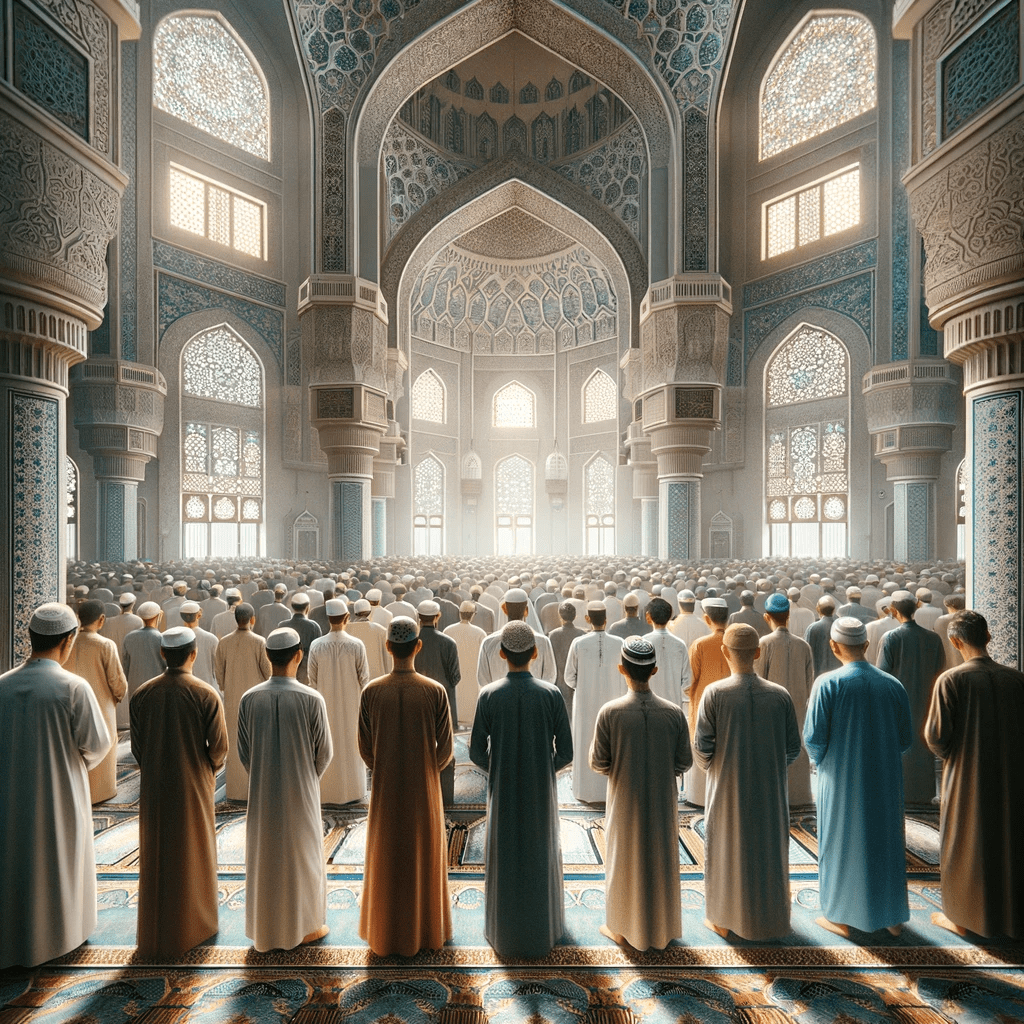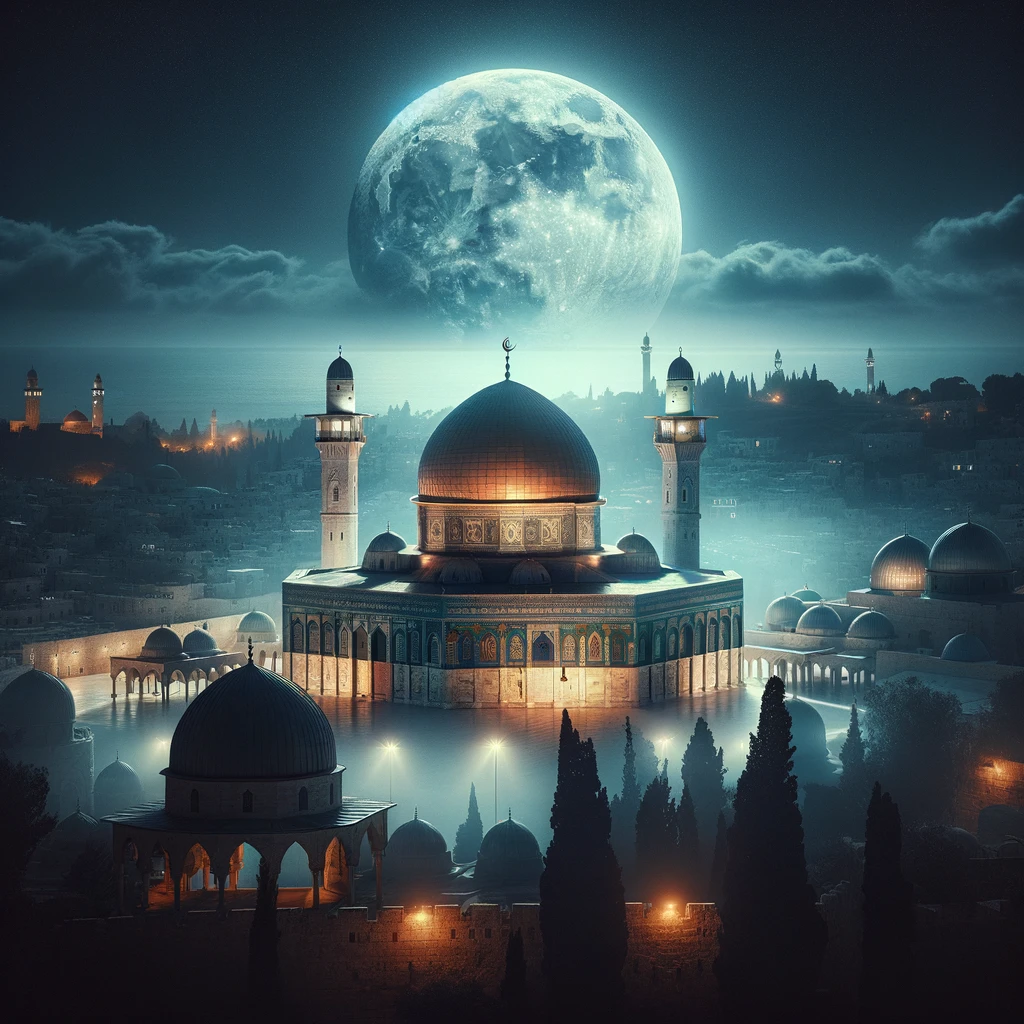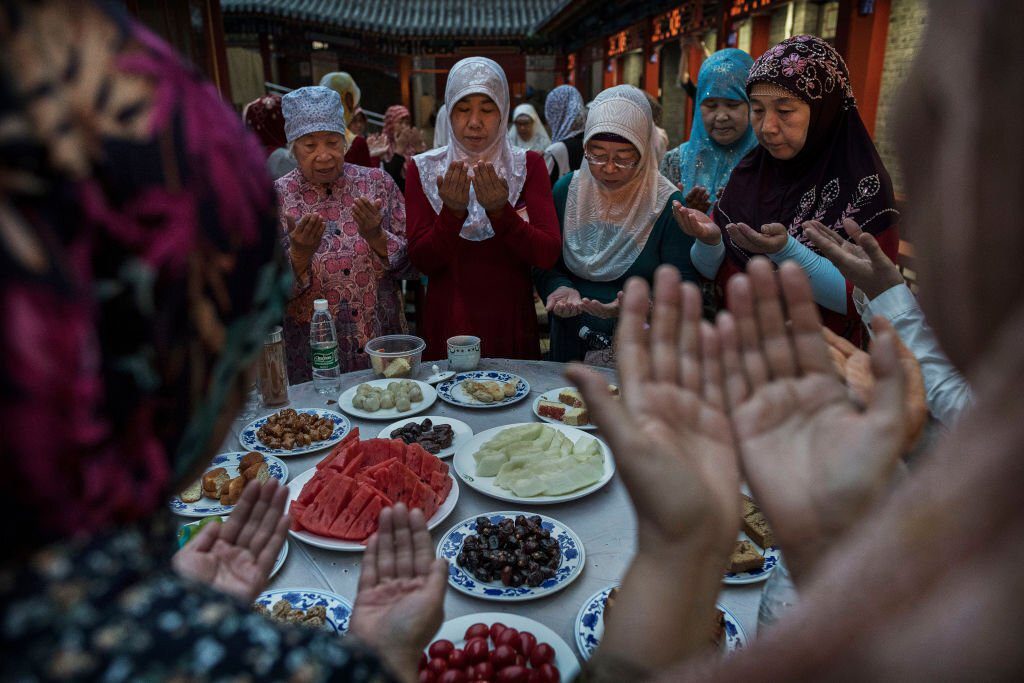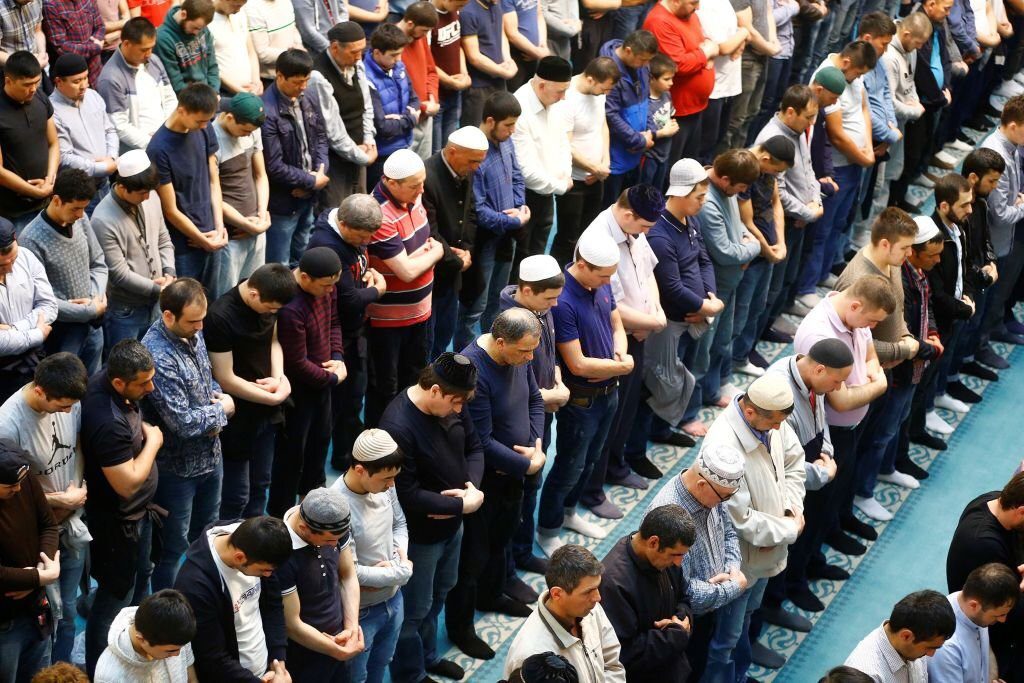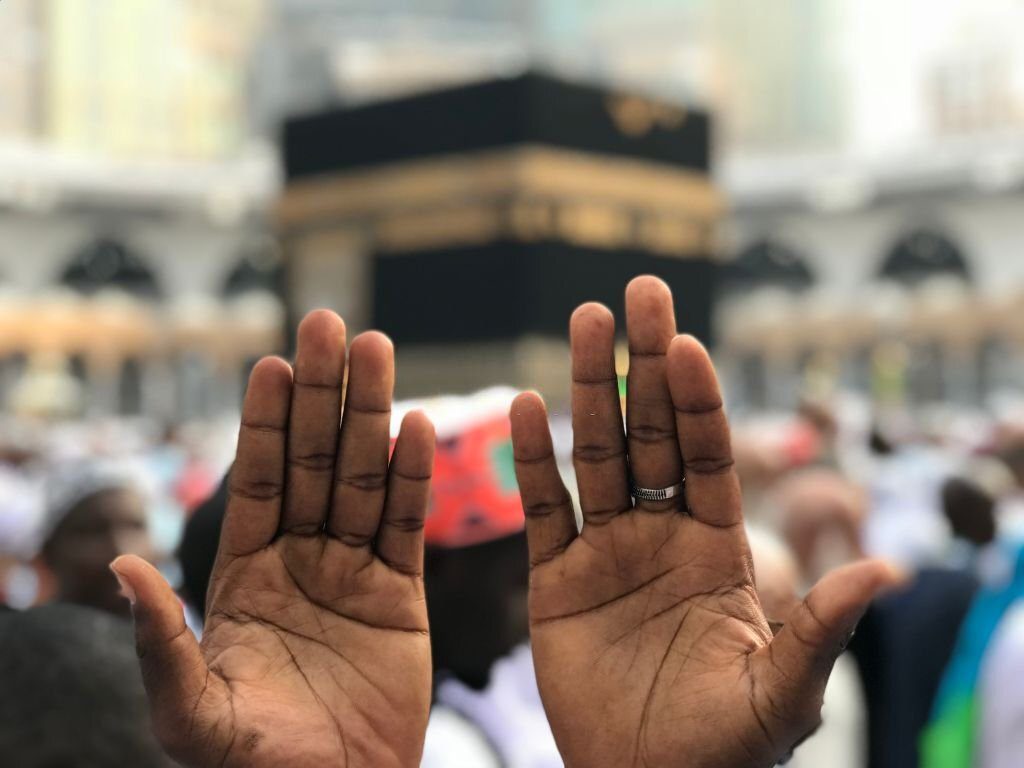Jumua, or Friday prayer, holds a distinguished place in the life of a Muslim. This weekly congregational prayer, performed in place of the Dhuhr prayer on Fridays, is more than a ritual; it is a spiritual summit that brings the Muslim community together in worship and reflection.
Jumua salah is rooted in profound historical and religious significance, symbolizes unity, brotherhood, and the rejuvenation of faith. It is a time when Muslims gather in mosques across the globe to listen to a sermon (khutbah) that imparts wisdom and guidance, followed by the collective performance of the salah.
This sacred assembly is not only a religious obligation but also an opportunity to step back from the mundane routines of daily life and immerse oneself in spiritual contemplation and communal bonding.
Lexically what does Jumua mean in Arabic
The word Jumua is derived from the Arabic root letters jeem-meem-ain (Kilani, 2005), meaning:
- Altogether, to bring together, to collect, place of gathering
- All of them, entire
- Assembly, group (of people)
- Friday
According to the dictionary of modern written Arabic, jeen-meem-ain means to gather, to collect, to unite, to assemble. It means gathering, collection, aggregation (Wehr, 1980).
What does Jumua and the Friday Prayer mean?
Friday is named Al-Jumua because it stems from the Arabic word ‘al Jam’ which literally means gathering. For Muslims, Friday is a day of gathering, a day of congregation and worship. It is a reminder of the Day of Resurrection when all humanity will be gathered. The time for Friday prayer is a time to leave the worldly tasks behind and spend time in the remembrance of Allah. Such is the virtue of this day that in the Quran there is an entire Chapter named Al-Jumua.
Al Bayhaqi recorded that the Prophet ﷺ said,
“The best day in the sight of Allah is Friday, the day of congregation”.
Friday is also the day on which one of the greatest verses in the Quran was revealed. It is recorded in Sahih Al Bukhari that Umar bin Al-Khattab (may Allah be pleased with him) narrated:
Once a Jew said to me, “O the chief of believers! There is a verse in your Holy Book which is read by all of you (Muslims), and had it been revealed to us, we would have taken that day (on which it was revealed) as a day of celebration.”
Umar bin Al-Khattab asked, “Which is that verse?” The Jew replied,
“This day I have perfected your religion for you, completed My favor upon you, and have chosen for you Islam as your religion.” (Al Maida, 5:3)
Umar replied,
“No doubt, we know when and where this verse was revealed to the Prophet ﷺ. It was Friday and the Prophet ﷺ was standing at ‘Arafat (i.e., the Day of Hajj)”
The History of Jumua
The Arabic word for Friday is ‘Yaum al Jumua’. In the ancient language, Friday was called Yaum al Arubah (Mubarakpuri, 2000). Even before the advent of Islam, it was a norm amongst the followers of the earlier scriptures to set aside a day in the week for worship.
The Jews had fixed Saturday (Sabbath) as their day of weekly worship, considering that this was the day when the Children of Israel were delivered from the bondage of the Pharoah.
The Christians chose Sunday for this purpose with the belief that this was the day when Prophet Jesus (peace be upon him) had risen from his grave and ascended to the heaven after his death on the Cross.
Muslims do not believe that Prophet Jesus died, nor that he was crucified.
Allah ta’ala guided the Muslims to adopt Friday as the day of congregational worship, thus distinguishing them from both these communities (Mawdudi, 2001).
It is recorded in Sahih Al Muslim that Prophet ﷺ said,
“Allah diverted those who were before us from Friday. For the Jews there was Saturday, and for the Christians there was Sunday. Allah then brought us and guided us to Friday. He made them Friday, Saturday and Sunday, and it is in this order they will come after us on the Day of Resurrection. We are the last of among the people of this world and the first among the created to be judged on the Day of Resurrection.”
When was Jumua prayer made obligatory?
Jumua was made obligatory upon Prophet Muhammad ﷺ before the Hijrah (migration) to Makkah. However, the Prophet ﷺ could not act upon the ruling then, as the environment with Makkah was not conducive to collective worship. Hence the Prophet ﷺ sent a letter to the earlier migrants to Madina, and instructed Musab bin Umair (may Allah be pleased with him) to establish the Jumua congregational prayers there, as he represented the Prophet in Madina.
Allah ta’ala made Friday prayers an obligatory act of communal worship. He says in Surah Al Jumua, 62:9
“O you who believe! When the call is proclaimed for Jumu’ah (Friday Prayer), come fast to the remembrance of Allah”
Where was the first Jumua?
When the Prophet ﷺ migrated to Madina the Jumua prayers were conducted by him. After leaving Makkah, Prophet Muhammad ﷺ reached Quba on Monday, and stayed there for four days. He proceeded to Madinah on the fifth day, which was a Friday. On his way, at a place called Bani Salim, he stopped to offer Friday prayers. Here he performed the first congregational prayer (Mawdudi, 2001).
Masjid Jumua, situated at the boundary of Madina, marks the site where the Prophet ﷺ led the first Jumua prayer. It is approximately 2.5 km from Masjid al Nabwi.
The Rewards for performing Jumua?
Imam Ahmed recorded that Prophet Muhammad ﷺ said,
“Whoever performs ghusl on the day of Jumua, leaves early, walking not riding, and sits close to the Imam and listens without talking, will earn the reward of fasting and performing standing (in prayer) for an entire year for every step he takes.”
Imam Ahmed also recorded a narration from Abu Ayyub Al Ansari (may Allah be pleased with him) that the Prophet ﷺ said,
“Whoever performs Ghusl on Friday and applies perfume, if he has any, wears his best clothes, then goes to the masjid and performs voluntary prayer, if he wishes, does not bother anyone, listens when the imam appears until he starts the prayer. Then all of this will be an expiation for whatever occurs between that Friday and the next Friday.”
An-Nasai recorded that the Messenger of Allah ﷺ said,
“The one who comes early to the Jumua prayer is like one who sacrifices a camel, then (i.e. coming later than that is) like one who sacrifices a cow, then like one who sacrifices a sheep, then like one who sacrifices a duck, then like one who sacrifices a chicken, then like one who sacrifices an egg.”
Omitting congregational Jumua prayers
Muslim recorded that Ibn Umar and Abu Hurairah (may Allah be pleased with them) narrated, that they heard the Messenger of Allah ﷺ saying:
“People must cease to neglect the Friday prayer or Allah will seal their hearts and then they will be among the negligent”
It is recorded by Muslim that Abu Hurairah (may Allah be pleased with him) reported that the Prophet ﷺ said,
“If you say to your companion: Listen attentively, on a Friday when the Imam is delivering the khutbah, then you have engaged in idle talk.”
Surah Al Jumua
Surah Jumua is a Madani surah. It has 11 ayaat and 2 ruku. It is part of the Musabbihaat series in which Allah declares His perfection in the beginning of the surah.
The name of the surah has been derived from ayah 9. According to Sahih Muslim, Prophet ﷺ used to recite Surah Al Jumua and Surah Al Munafiqoon while leading the Jumua prayer.
Ayah 1 to 8 of Surah Jumua were revealed at the time of the conquest of Khaibar. This was when the last stronghold of the Jews had fallen to the Muslims. (Mawdudi, 2001).
In this first passage of the surah, Allah describes the great gift of revelation and how it formed a nation which is beyond ethnicity, beyond one culture and tradition. Allah sent Prophet Muhammad ﷺ for the guidance of the whole of humanity.
This is unlike the tradition of Allah with the Israelites, who were one nation having several prophets sent to them, and Allah preferred them over all other nations of the world. This passage talks about those who lost the true spirit of their faith from within the Jews. The Jews of Madina are reprimanded for not acting upon their belief. Allah ta’ala comments that they are like donkeys with a load on their backs. As a result, they lost their purpose in life.
Ayah 9 to 11 were revealed shortly after the Prophet’s migration to Madina. This passage is addressed to the believers. They are told that when the call is made for prayers on Friday then it is time to rush to the remembrance of Allah, leaving their businesses behind. Once the Jumua prayer has been performed, believers can go back and pursue their daily activities.
Towards the end of the Surah, Allah mentions an episode where a trade caravan from Syria arrived in Madinah right at the time of the Friday Prayer. At that very moment the Prophet was delivering the Friday Khutbah. The people of the caravan were beating drums to announce their arrival. Consequently, the attendees of the congregation got distracted and rushed towards the caravan seeking merchandise. Allah reminds them that He is the Best of Providers.
Lessons Learned
Knowledge is useless unless acted upon. Knowledge that is not accompanied by true understanding, reflection and practice, and purification of the soul is as useful for the holder of that knowledge as the books are for the donkey carrying them. (Baig, 2014) Moreover, worldly distractions should not take away our focus from that which is of ultimate success in both the worlds i.e., the remembrance of Allah. Come to Allah willingly, in complete submission.
Knowledge Nugget
The trade caravan belonged to Dihyah ibn Khalaf Kalbi (Usmani, 1996). At that point in time, he had not accepted Islam. It was later that he became a Muslim.
